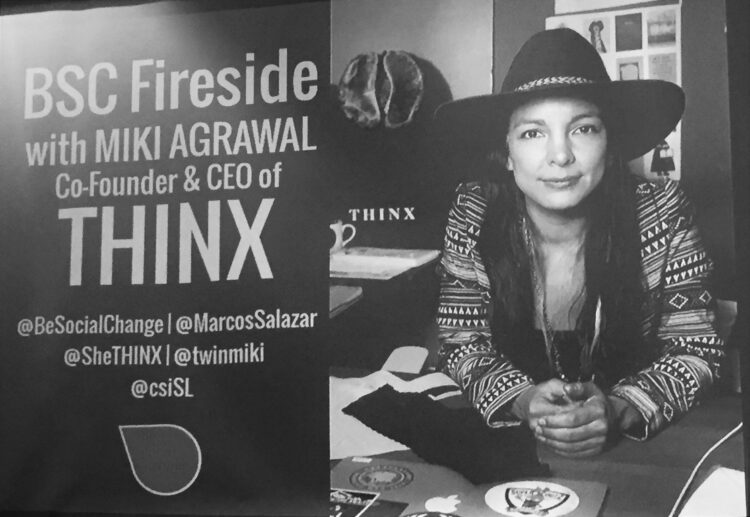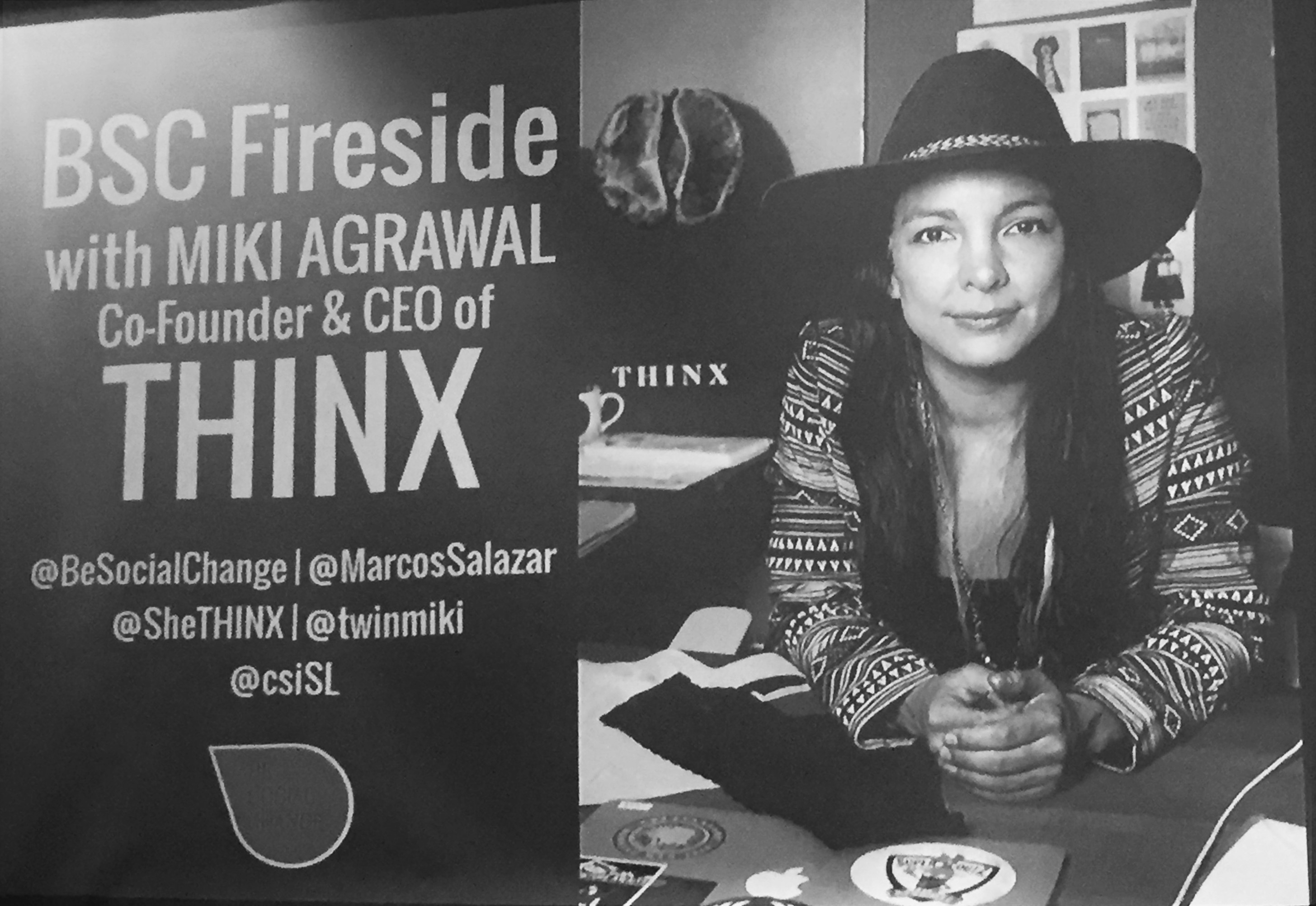A fireside chat with Miki Agrawal added to the New York summer heat recently at the Be Social Change (BSC) venue in Chelsea. Be Social Change is the largest social impact community and professional development hub in New York City. Marcos Salazar, cofounder and Executive Director of BSC, bravely navigated traditionally taboo topics with the cofounder and CEO of THINX. Miki Agrawal is a serial entrepreneur using innovation to break social taboos around periods, pee, and poop. Her line of brands THINX, icon, and tushy make most adults squirm. Miki is also the author of Do Cool Sh*t: Quit Your Day Job, Start Your Own Business & Live Happily Ever After and the founder of WILD, a New York city gluten-free restaurant.
Agrawal responded to the universal intensely personal female experience of monthly accidents with a concept in 2005. That concept led to the kick off of a long product development cycle in 2010. The result was a product launch in 2014 of a high-tech beautiful underwear solution for women to wear during their periods. THINX has partnered with Uganda-based AFRIpads to fund reusable cloth pads for every THINX underwear sold to get millions of girls back in school. Of 100 million girls in the developing world, 94% of girls in Uganda report problems at school due to menstruation, and many ultimately drop out of school.
Miki unlocked a $15B market opportunity and transformed shame to self-esteem with the launch of THINX. Her bold solution combining innovation and feminism, saves women time, money, and aggravation. Agrawal has made period underwear absorbent, leak proof, breathable, memorable, and mentionable.
Miki’s passion to do social good doesn’t stop there. She has launched icon, a pee-proof underwear that keeps you dry and odor-free from light leaks. Every Icon purchase also helps fund treatment, recovery, and life-changing surgeries for women affected by Fistula. A million women in the world suffer from untreated obstetric fistula, but fewer than 20,000 are treated each year. For every woman that gets treated, at least 50 go without.
Speaking of unmentionables, another complementary product, tushy, is an affordable ($57) bidet attachment with the goal to promote personal hygiene and reduce global wastefulness. Tushy could prevent 26 million combined cases of hemorrhoids, UTIs, and yeast infections per year. Americans use an average of 57 sheets of toilet paper daily with each roll taking 37 gallons of water to make. 15 million trees per year are used to make those roles. In partnership with Samagra, one family in developing countries gains access to clean community toilets, for every tushy sold. Poor sanitation around the world contributes to one billion people practicing open defecation in developing countries and one child dying every 17 seconds because of it.
What we can learn from Miki’s passion journey to impact social change:
- Solve a problem
- Build endurance during product development
- Hire experts early, if you can
- Focus on your strengths; bring in partners with complementary skills
- Fund raising is hard, expect to be consistently humbled and pursue all avenues
- Build strong relationships, build communities, and networks
- Establish relevant partnerships, locally and globally
- Invest in digital and traditional marketing; be creative
- Capitalize on setbacks, particularly with social media
- Recognize that scaling a business is hard; every decision you make has gravity from negotiating contracts to setting company culture
- Be authentic to your company’s brand and story; leverage your personal brand in service of the business
- Balance vision with daily execution. Period.




